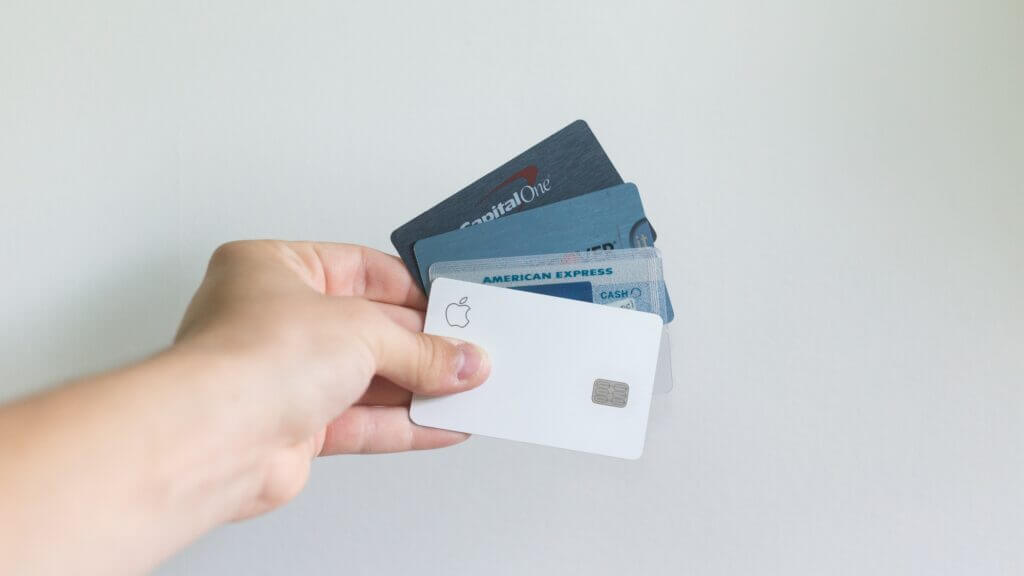The ability to buy on credit is important in our society. High interest on credit cards, a vehicle, or a home though can eat away at your disposable income. With a healthy credit score, it is easier to get the credit you need when you need it. At the same time, you pay less in interest if you are considered low-risk for repaying what you borrow.
A good credit score is about 670 and that is about average. If you can get it into the 740 range you will have very good credit and be rewarded with better offers. Anyone with a credit score over 800 is considered to have outstanding credit. When a couple applies for credit, the person with the highest score should be the main applicant and the person with the lower score the secondary on the application.
Establishing first-time credit doesn’t have to be a challenge. Parents can put a teenager or young adult on a credit card as an authorized user. As long as the parent account is in good standing, it helps the child to build credit. Students can also get student credit card offers. They typically have a low credit limit and a low-income requirement. Such a card can help to build credit and it can help with emergency expenses.

What is your Credit Score?
Your credit score ranges from 300 to 850. If you have no credit or poor credit, you will be at the lower end of the scale. The higher your credit score, the easier it is to get approved for credit. A higher score means you are responsible with credit and your interest rate will be lower too. Building your credit takes time, but is worth the effort!
When you first get a vehicle or a credit card, your interest rate can be higher than average. As you show you are responsible with the credit and pay as agreed, your score will increase. Avoid spending money you don’t have or racking up high credit card debt. Doing so can damage your credit score. Always pay your bills on time because late payments and collections also harm your credit score.
Elements of a Credit Score
Several elements collectively create your credit score. The length of time you have credit is one of them. This is why you should never close your oldest credit card, even if you no longer use it. If you close it, this can lower your credit score. Strive to keep all credit card debt below 30% of the allocated credit.
Paying all your bills on time is important for a good credit score. It shows you are responsible with your money and stay on top of what you owe. Late payments lower your credit score and if anything gets turned over to collections, it can stay on your credit report for up to 7 years! This will make it harder to get credit at a good rate. If you file for bankruptcy, your credit score is going to drop dramatically. It can take years to get it back to a good score again.
Don’t apply for credit unless you plan to use it. Too many hard inquiries on your credit can also lower your overall score. Creditors may worry you are trying to get your hands on too much available credit all at once. Many lenders give you a chance to see what you qualify for without a hit on your credit score. This information can help you decide if you want to process your application or not.
The breakdown of your accounts influences your credit score with the following impact:
- 35% – Your overall payment history
- 30% – Your credit utilization rate. This is the amount you owe compared to the amount of your overall available credit.
- 15% – Average length of your complete credit history.
- 10%- New credit and new credit inquiries
- 10% – Mixture of types of credit (home, vehicles, credit cards, etc.)
Improving your Score
There are times when your credit score is lower than you like. You may be establishing your credit history, and it will take time to build up your score. Applying for a few credit cards and paying them off each month can help you establish your creditworthiness in less time. There may be circumstances out of your control that cause your debt to increase.
Perhaps you lost your job or had high medical bills to pay. Many people saw their lives and finances turned upside down due to the COVID-19 pandemic. They no longer had enough money to pay all their bills. Getting back on track takes time, but it is possible. Create a budget and stick to it. Cut out any unnecessary expenses and focus on paying your highest interest bills off first. Then you can allocate that money to the next debt.
Contact your creditors to see if they can re-age the account, reduce interest, or offer you a settlement. Such options help you pay less and get your credit score higher. Many creditors have options for those in a difficult situation, and it never hurts to reach out and see what they can do for your scenario.
If your debt continues to be higher than your income each month, drastic changes may be necessary to get your credit on track. You may need to move into a less expensive home or get a cheaper car. Getting a second job may be a way to increase income and get those bills paid down. If you aren’t sure where to start on your own, there are credit counseling programs free of charge. You can sit down with an expert and go through your bills, income, and situation to create the best strategy.
Information on a Credit Report
Potential creditors look at more than just your score when determining eligibility for approval. They review important information on your credit report. It shares your identifying information including your name and any other names you may have obtained credit under. For example, this can include both your maiden name and your married name.
Your date of birth and at least the last four digits of your social security number are visible. This information helps them verify the details for the person applying. Employment details are often found on credit reports. Such details help them to confirm the employment history of someone and their current employment status.
A credit report is going to show all of your creditors including their name, the original balance, the date of the credit, and the current balance. It will show your payment history from the time of origin to the current time period. Any public information records including liens against property or judgments will be on your credit report. It also shows any creditors that obtained your credit and when they did so.
Impact of Credit Report and Credit Score Beyond Obtaining Credit
Your credit report and your credit score impact much more than just your ability to get credit cards or other forms of credit. They are often used by entities to determine if you are reliable and responsible with your money. Many landlords will require a credit check and a certain credit score before they will consider letting you reside in their property. They need to be sure you can afford to live there and you will pay your rent on time monthly.
It isn’t uncommon for various employers to require a credit check before they extend a job offer. This often happens in a capacity where the job involves access to money or financial accounts. This includes banks, retail locations, and many more. Your rates for vehicle or home insurance can also depend on your credit score. While this may not seem fair, it is legal and more businesses are using credit score and credit report information in their algorithms than ever before.
Review your Credit Report
You should review your credit report annually for any mistakes or problems. If you notice any issues, complete the process to have the item evaluated and corrected as soon as possible. You will need to do this for each credit report the issue is showing up on. Attach copies of as much supporting documentation as you can.
Make sure you follow up with your filing if you don’t hear back after 30 days. They may ask you for more information. If the information you provide can’t resolve the issue, ask the reporting agencies to put a statement on your report that you disputed that information. Such a statement added can be seen by any entity that reviews your credit report.
Obtain a free copy from all three reporting bureaus and carefully go through them. You can request them by calling (877) 322-8228 or online at www.annualcreditreport.com. These agencies are:
- Equifax
- Experian
- Trans Union
They may have some differences on them so checking one isn’t enough. It is a good idea to review your credit report before you attempt a large purchase such as a home or vehicle. Knowing what is on the report can help you get a great rate and increase bargaining power!





